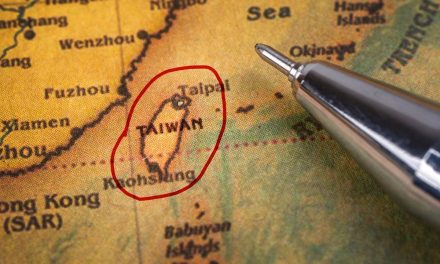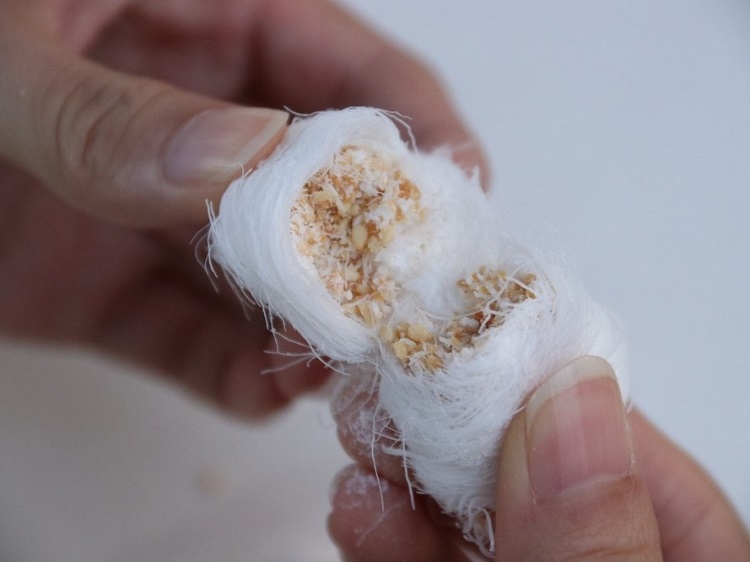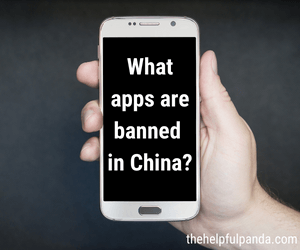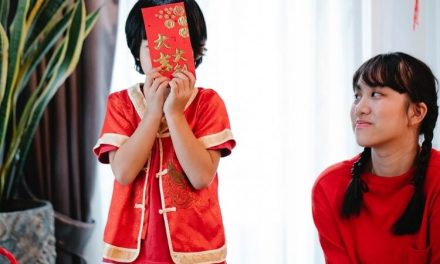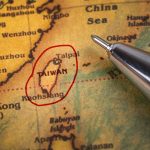Do you have a bit of a sweet tooth?
When I was in China, I always craved something sweet after my meals.
Fortunately, China had the answer to this craving, often in a dessert that I’d never even heard of before.
Traditional Chinese desserts come in a bewildering variety and can be found everywhere, ranging from slightly sweet fruit buns in markets to decadently beautiful cakes in bread shops.
So, while you’re traveling in China, make sure you explore this often-ignored part of the local cuisine.
Before we start…
Chinese food traditions are very different to what you’re probably used to.
For instance, China is huge and contains numerous food cultures. Each region has different tastes and therefore different dessert dishes.
Traditional Chinese desserts don’t contain a lot of dairy products. This is vastly different to many Western desserts.
Also, the locals may eat sweet things at any time of the day (including at breakfast) and desserts may be served before savory ones.
So, you just might find yourself enjoying desserts alongside rice in the morning.
Note: All the recipe links you’ll find below go to leading food sites. Enjoy!
1. Egg tarts 蛋挞 (Dàn tà)
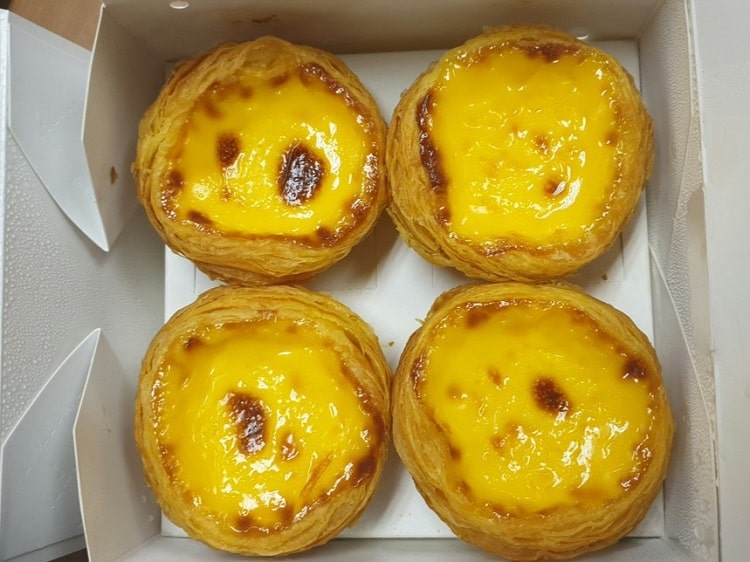
The egg tart is the perfect dessert. Image by Phakji East on Shutterstock.
Based on my firsthand “research” living in China, this is the best Chinese dessert. It’s also one of the most famous.
Egg tarts were introduced to China via Portuguese settlers in Macau and are small custard tarts with hard and sweet crusts.
They’re best eaten warm and can be found in a variety of shops, including hole-in-the-wall specialty shops where these tarts are the only product.
I absolutely loved grabbing a few tarts on the go from these small shops. They always tasted better than you could find anywhere else.
2. Red bean bun 豆沙包 (Dòu shā bāo)
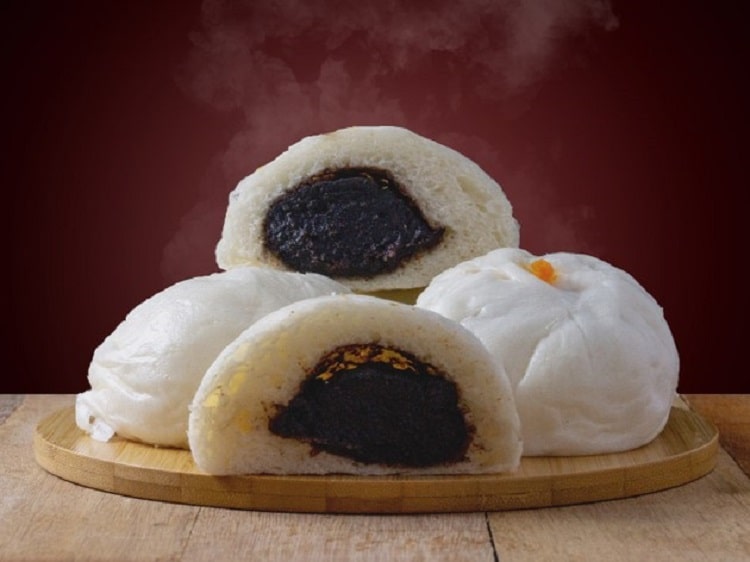
One bite of these and you’ll be hooked. Image by Nopphadol Tongthae on Shutterstock.
This dessert is basically a steamed bun filled with smashed red beans.
It sounds a bit strange to say that beans are the main ingredient in a dessert, but this is actually one of the most popular ingredients in sweet desserts in China.
Red beans and red bean paste look a bit like chocolate when they’re in a bun, but you’ll taste the difference once you bite into it.
This authentic Chinese dessert is popular throughout the country, especially in the north.
You can also find room-temperature bread filled with red bean in bakeries and supermarkets everywhere.
Read bean soup, a dessert soup, is popular in China too.
3. Grass jelly 烧仙草 (Shāo xiān cǎo)
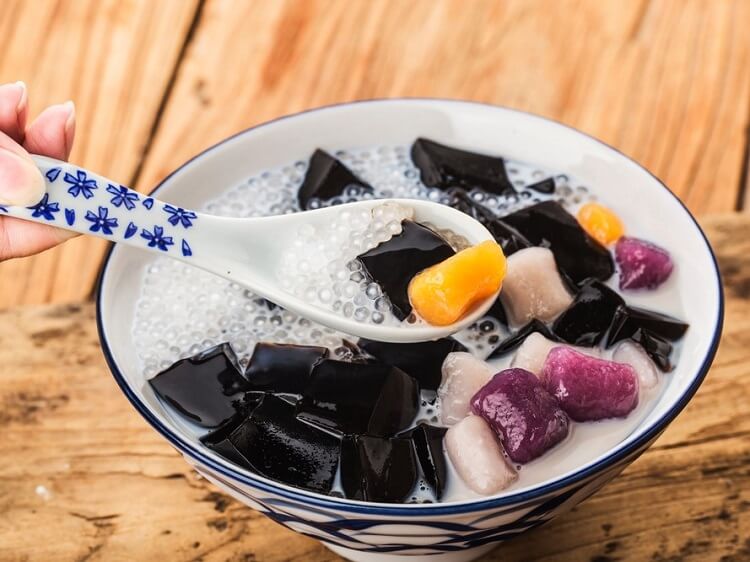
Enjoy a bowl of grass jelly (jello) while you’re in China. Image by Yuda Chen on Shutterstock.
Most desserts in western countries are sweet, but this isn’t the case in China, as you’ll realize once you try this dessert.
Grass jelly is made by boiling a type of mint grass with starch and baking salt.
It’s mild and slightly bitter and is served alone cold, in drinks, or with fresh fruit toppings. So, it’s the perfect treat in the hot summer months.
4. Bing tang hu lu 冰糖葫蘆 (Bīng táng hú lu)
I guess you can call this a dessert – it depends who you’re asking!
Tang hu lu is basically candied fruit on a stick. Chinese street vendors sell it at markets and by the side of busy roads.
It originated in Beijing and usually features hawthorns or cranberries, though you can find sticks that have kiwifruit, strawberries or grapes as well.
If you’re in Beijing, you’ll find sugar-coated haws everywhere around the main tourist attractions, so make sure you give it a try while you’re there.
And, when you’re munching, remember to watch the pips if your tanghulu contains stone fruit like hawthorns.
5. Sesame seed balls 煎堆 (Jiān duī)
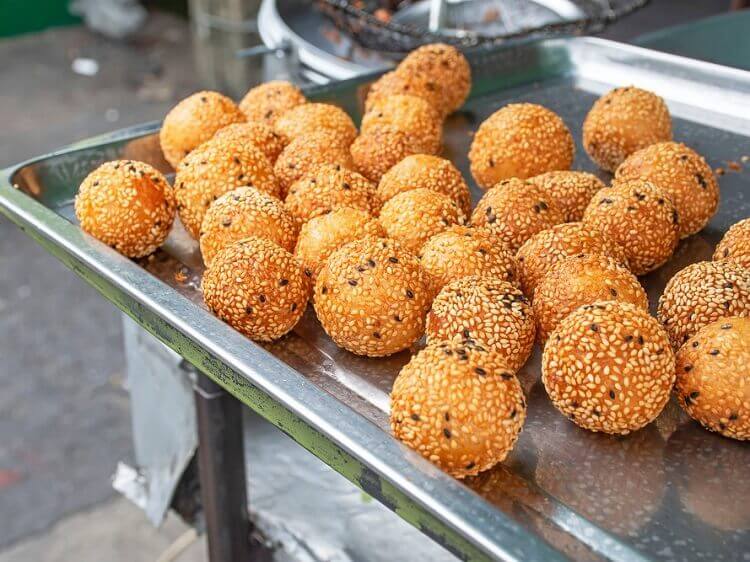
Jian dui is a tasty Chinese street food dish. Image by Gratisod on Shutterstock.
This is one of the most popular Chinese desserts.
Jian dui is basically made from little balls of fried dough with a sweet sesame filling and toasted sesame seeds crust.
Sesame seed balls are sweet, doughy, and crunchy all at once, which might not sound that appetizing, but are actually really good. They can also contain other fillings if you’d like a break from the sesame.
They’re commonly served ready-made as quick, early morning breakfast bites, but also sold as sweet snacks all day long.
They can be quite oily, so do what I do and lick your fingers afterwards!
Recipe for sesame seed balls >
6. Dragon’s beard candy 龙须酥 (Lóng xū sū)
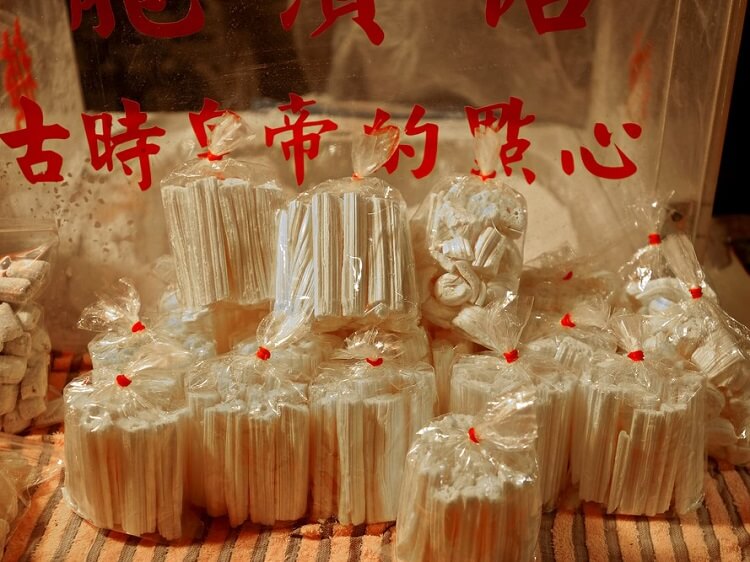
The kids will love this snack. Image by Topimages on Shutterstock.
Dragon’s beard candy is the ideal sweet snack for kids.
This candy actually dates back to the Han Dynasty, and it can be bought at roadside stalls all over China.
It looks a little bit like cotton candy but is crunchy, with a sweet and nutty flavor.
It also melts very quickly, so make sure that you eat it up fast or you’ll end up with it all over your hands.
Recipe for dragon’s beard candy >
7. Sweet egg bun 奶黄包 (Nǎi huáng bāo)
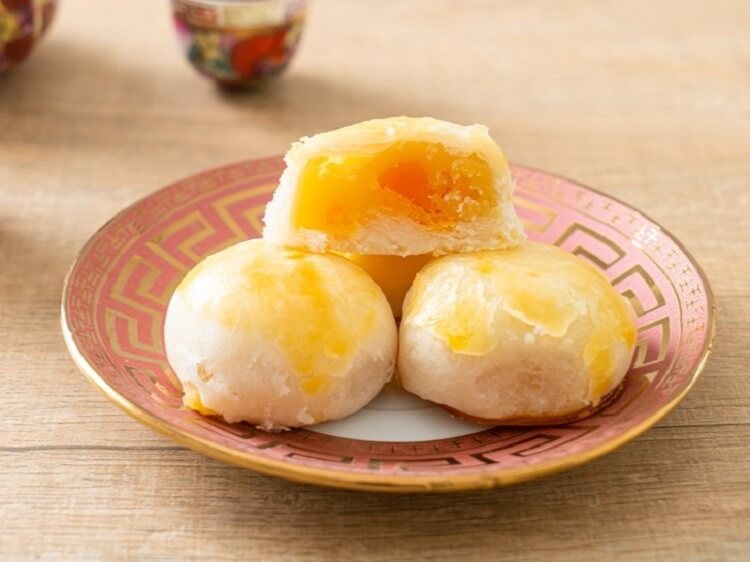
These buns have a gooey center. Image by gowithstock on Shutterstock.
This Chinese dessert is popular in southern China. It’s a sweet bun filled with egg yolk and sugar.
You’ll probably have to go to a Cantonese restaurant for one of these dim sum favorites, which are the perfect combination of warm, creamy, and not too sweet.
In a word: yum.
8. Banana fritter 炸香蕉 (Zhà xiāng jiāo)
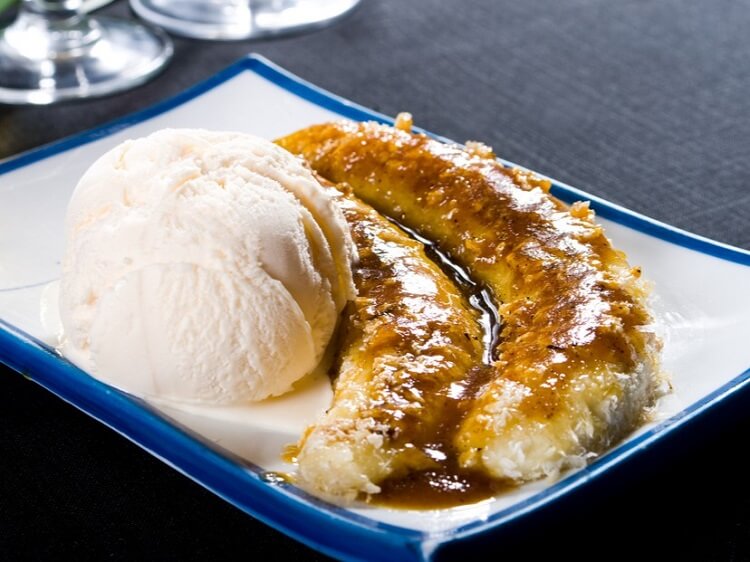
The classic Asian dessert in Chinese restaurants around the world. Image by michaeljung on Shutterstock.
This dish didn’t originate in China but you can find it in menus in Chinese restaurants overseas.
So, it’s traditional from a foreigner’s perspective!
If you like to cook, then you might want to try making banana fritters as it’s one of the easiest on this list.
Made from pieces of banana that are coated in batter and deep fried, this dessert is sticky, lush, and almost sickeningly sweet.
It’s best served with ice cream, of course!
9. Almond jelly 杏仁冻 (Xìng rén dòng)
Almond jelly is one of the authentic Chinese desserts that you can eat throughout the country.
It’s made using an apricot kernel, which is soaked and ground until the milk is extracted, and a gelling substance added.
Despite the fact that there are no almonds in it, it really does tastes like almonds and is often garnished with berries.
This dessert can be found in Chinese restaurants, particularly dim sum restaurants.
10. Deep fried durian 榴莲酥 (Liú lián sū)
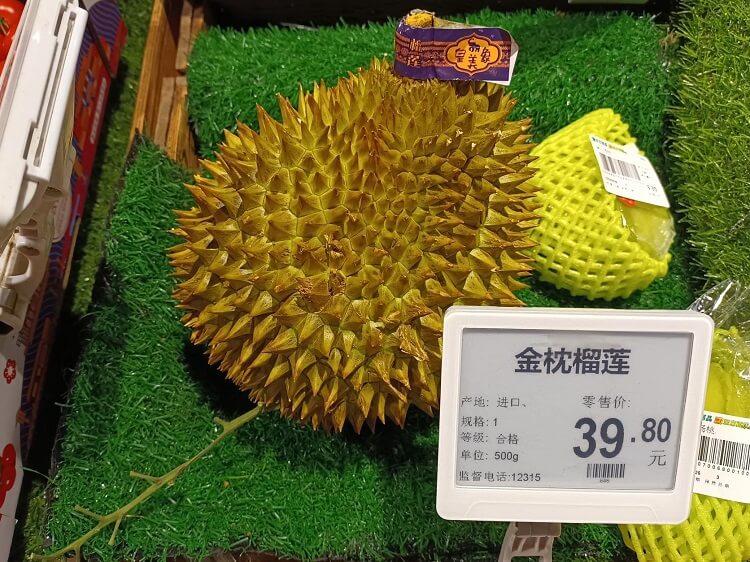
Durian fruit is known for being spiky and smelly. Image supplied by Mike Cairnduff.
If you’re the type who likes to try new things and doesn’t mind bad smells, then you should try deep-fried durian.
It’s a spiky fruit that’s popular in Asia and it smells like rotting trash. In fact, the smell is so bad that the fruit is banned on public transport in some parts of Asia.
If you can hold your nose and ignore the smell, then durian actually tastes quite good. It’s creamy and tastes like a mix of cheese, nuts, garlic, and caramel, which is why it’s also one of the more popular ingredients in Chinese desserts.
While you’re in China, you’ll find this fruit sold as a dessert with a light deep-fried crust. It still stinks so don’t touch it with your hands or you’ll smell like it all day.
Chinese people are very adventurous with food and you can even find durian on things like pizza.
11. Fried milk 炸牛奶 (Zhà niú nǎi)
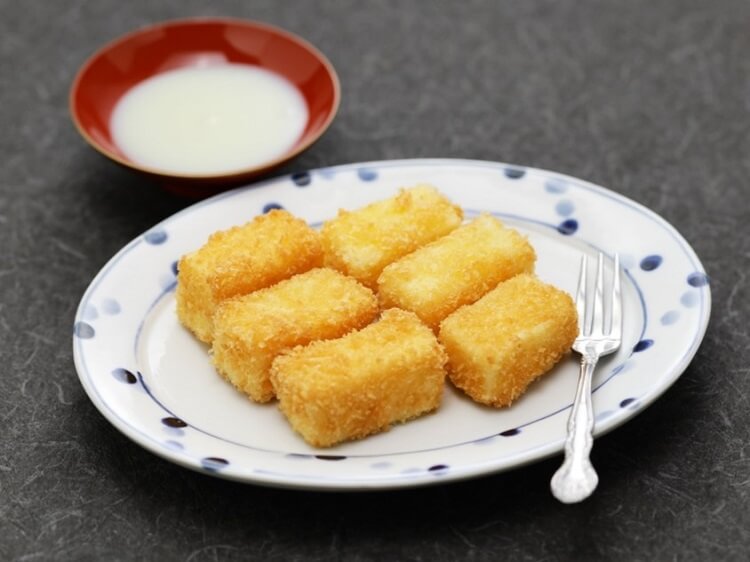
You’ll love fried milk if you love milk… and deep-fried snacks! Image by Bonchan on Shutterstock.
This dessert sounds strange but it’s amazingly good, particularly if you love dairy products like I do.
It’s made from coconut milk that’s thickened with corn-starch, set in the fridge, and then rolled in breadcrumbs and fried in hot oil.
The taste of this Cantonese Chinese dessert is sweet, crispy, and oddly comforting and familiar, even if I could never remember what it reminded me of.
It’s also pretty fattening, so eat it in moderation!
12. Tang yuan 汤圆 (Tāng yuán)
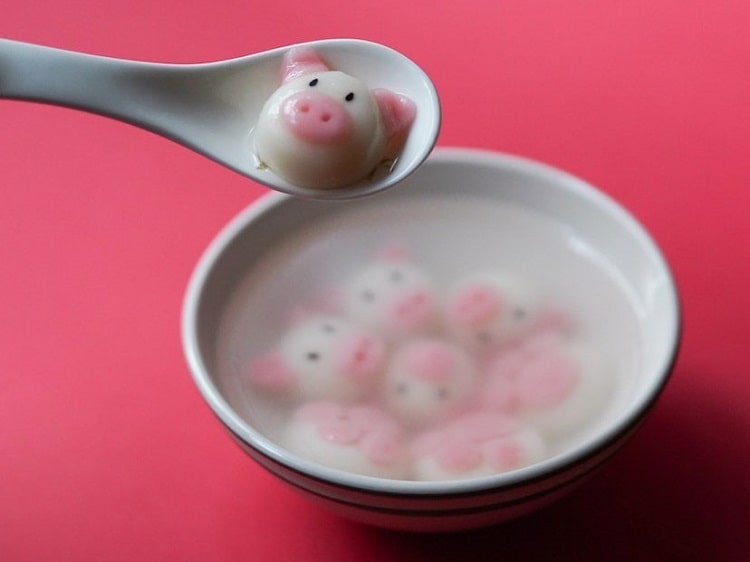
You can get novelty tang yuan like this one. Image by Cats Coming on Pexels.
This dessert is from Sichuan province and it’s a warm soup filled with fermented rice and rice balls.
The soup itself often tastes a little alcoholic and the balls vary from marble size to the size of a ping pong ball.
Traditionally, this soup is eaten during the Lantern Festival but it’s also served at other important events that symbolize unity, such as weddings and Chinese New Year.
The glutinous rice balls are usually filled with a mix made from peanuts, sesame, sugar and animal fat but can also be made with other fillings.
13. Mooncake 月饼 (Yuè bǐng)
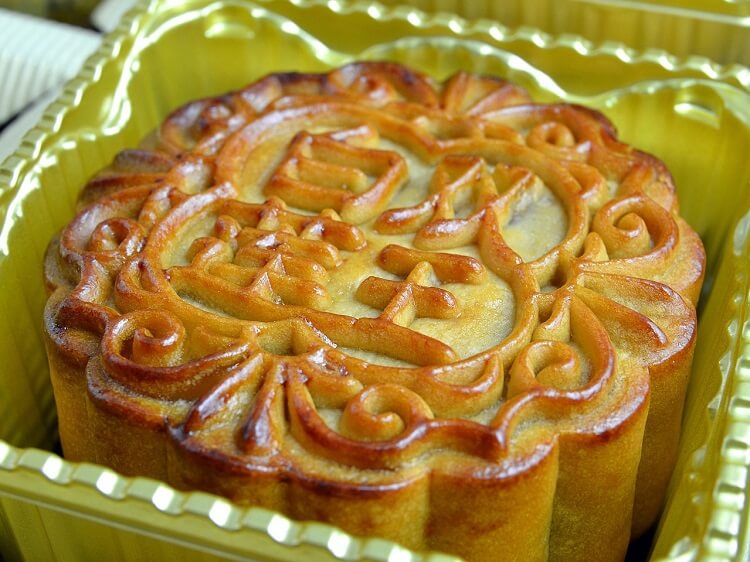
Mooncake is one of the traditional Chinese desserts. Image by Cedric Yong on Pixabay.
If you’ve ever been in China around September, then you probably saw these little cakes everywhere.
Despite the name, moon cakes aren’t in the shape of a moon. But they’re enjoyed during the time of the autumn full moon and harvest season, when people celebrate Mid-Autumn Festival.
The main ingredients include red bean paste, lotus seed paste or salted duck egg yolk. These fillings can be a bit of an acquired taste, but overall mooncakes have the salty-sweet ratio nailed down.
Nowadays, you can get all sorts of uniquely designed mooncakes along with some creative, non-traditional fillings.
14. Pumpkin cake 南瓜饼 (Nán guā bǐng)
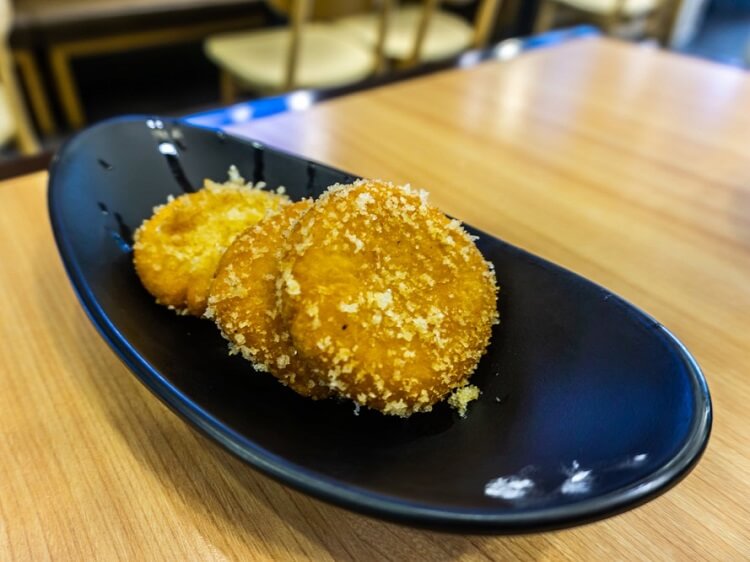
A simple yet delicious Chinese dessert. Image by AlexelA on Shutterstock.
Chinese pumpkin pancakes are strangely sweet when you consider that they’re made with a vegetable.
They contain sugar, pumpkin and flour and originated in Sichuan province, though they’re so popular that you can find them almost anywhere.
Having a nibble on one of these little cakes is a nice way to end a savory meal.
Recipe for Chinese pumpkin cake >
15. Fortune cake 发糕 (Fā gāo)
Fortune cakes or Fa gao are one of the most auspicious Chinese cakes.
They’re served during Chinese New Year and are thought to bring you good luck and good fortune.
They’re heavy, dense cakes that are steamed and look a bit like a spongy cup cake.
16. Pineapple cake 鳳梨酥 (Fèng lí sū)
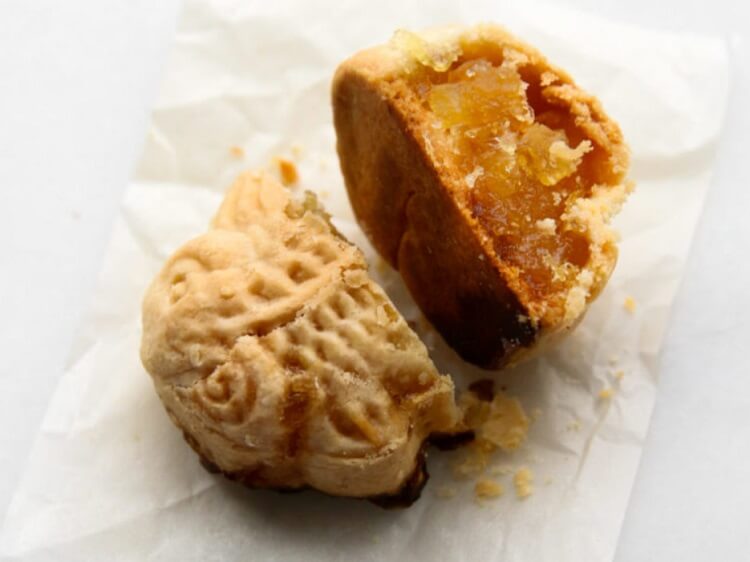
This cake is more like a small pie. Image courtesy of Constellation Inspiration.
Taiwanese pineapple cakes are traditionally served in honor of the Lunar New Year.
They’re a cross between a filled cookie and a small pie, more so than a cake. They’re usually square and made using a batter of flour, butter, and custard which is then stuffed with pineapple jam.
Pineapple cake is a surprisingly buttery and tropical dessert, which is great on warm nights.
17. Eight treasure rice pudding 八宝饭 (Bā bǎo fàn)
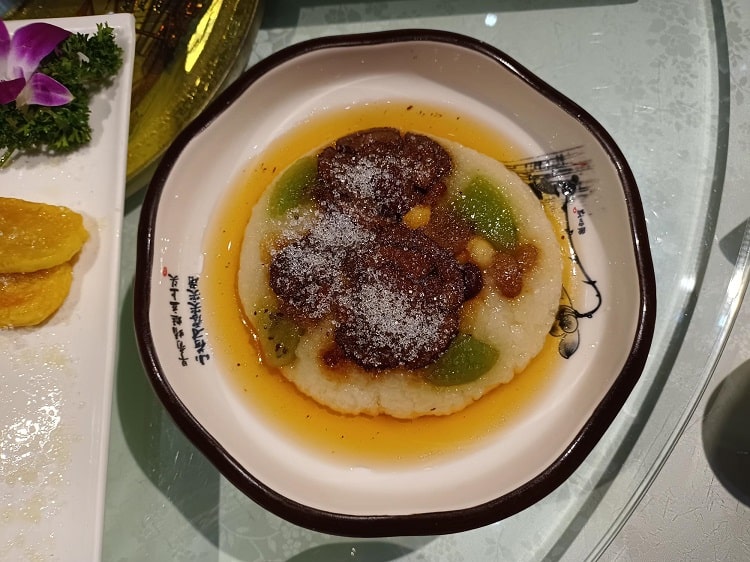
This dessert has a special meaning. Image supplied by Mike Cairnduff.
This dish is amazingly complex to make and it’s really pretty as well.
It’s a traditional Lunar New Year dish with a sweet, sticky rice base that is stuffed with eight different kinds of dried fruits, hence the name.
The result is a bright, colorful dish that contains everything from candied winter melon to raisins, dates, plums and jackfruit.
The ‘eight’ in the name is particularly special because it sounds like the Mandarin word for ‘rich’. And all Chinese dream of getting rich!
(You can check this page if you want to learn more about lucky and unlucky Chinese numbers.)
Recipe for eight treasure rice pudding >
18. Cream cake 奶油蛋糕 (Nǎi yóu dàn gāo)
Chinese cream cake doesn’t contain the kind of rich, thick cream you’re probably used to. It doesn’t contain buttercream either.
But Chinese cream cake looks like what you might get back home, so don’t be fooled by this sweet treat.
Apart from little chunks of fruit, there’s usually loads of caster sugar. But the base is a fairly plain sponge cake, depending on the chef.
All I’ll say is this modern Chinese dessert has such a sweet flavor that your blood glucose levels will go through the roof!
Recipe for Chinese cream cake >
19. Fortune cookies 幸运饼干 (Xìng yùn bǐng gān)
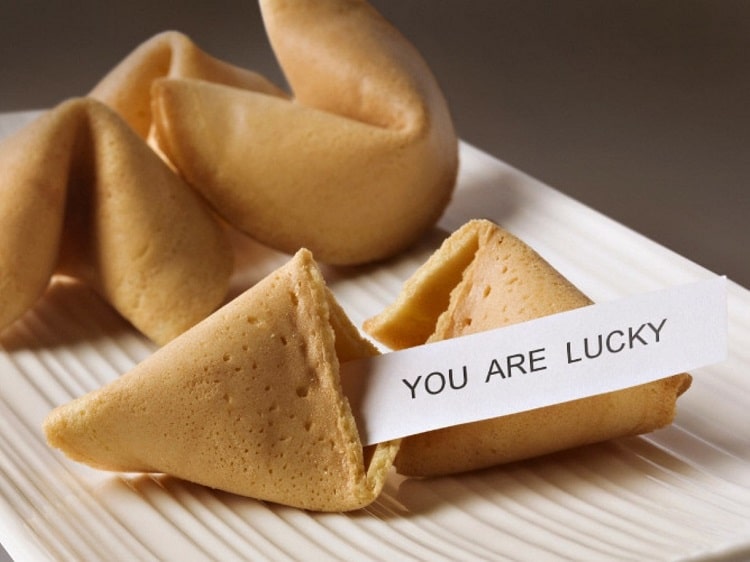
These cookies are often mistaken as an authentic Chinese food. Image by Pablo Jimeno on Pixabay.
This entry is last on my Chinese desserts list because, although these cookies are associated with Chinese culture, the idea for them came from Japan and the US.
This actually makes sense now that I think of it, because I didn’t see a single fortune cookie in a restaurant during my time in China.
I thought I’d include it in this list just in case you were wondering.
Heading to China soon?
Then take a look at The Helpful Panda’s packing list for China.
If you plan on eating a lot while you’re there, packing some pants with a stretchy waistband is a good idea!
Traditional Chinese desserts are delicious
Chinese desserts are very different to what you’ll enjoy back home.
They range from candy and cakes to sweet soups and rice dishes, so there’s definitely a dessert for every taste.
If you’re lucky enough to visit China, then make sure you explore the Chinese cuisine and try as many dessert dishes as you can.
Once I got back home, I searched high and low for ‘real’ tasting egg custard tarts, but they just don’t taste the same.
I hope you liked my article about popular and traditional Chinese desserts. I’ve also written one about what makes Guangzhou famous which includes the tasty Cantonese cuisine (surprise, surprise).
Other yummy articles on The Helpful Panda
- Discover all sorts of Chinese dumplings
- See if it’s possible being a vegetarian in China or even vegan
- Warm up your mouth with super-spicy Chinese food
- Learn about different kinds of eggs in China
Main image credit: Osacr_Y on Shutterstock.
FAQ about Chinese desserts
What desserts do Chinese eat?
It depends on what part of China you’re in. Some popular desserts you can find in most corners of China include egg tarts, red bean buns, candied fruit on sticks, and sesame seed balls.
Are Chinese desserts healthy?
No, not really. But they’re OK if eaten in moderation. Chinese cakes are the worst offenders, so avoid those if you’re watching your weight.
Why are Chinese desserts not sweet?
Traditionally, the Chinese have preferred desserts that are not as sweet as you’ll find in other parts of the world. It’s just the way their palate has developed over centuries through culture, food habits and availability. But nowadays, you can find Chinese desserts that are super-sweet, such as cakes and ice cream with sugary toppings.
Is Chinese dessert good?
Absolutely! You can find many Chinese desserts that aren’t too sweet, which is sometimes exactly what you want. But you can also find sweet Chinese desserts. It depends on your food preferences. Compared to desserts you can find in western countries, Chinese desserts don’t usually contain real dairy like thick, fresh cream.
What dessert goes with Chinese food?
It depends on the kind of Chinese food you’re eating. For example, you probably wouldn’t jump from seafood straight into cream cake. Pumpkin cake is a safe option as it’s a combination of savory and sweet, and you can use chopsticks to eat it.



